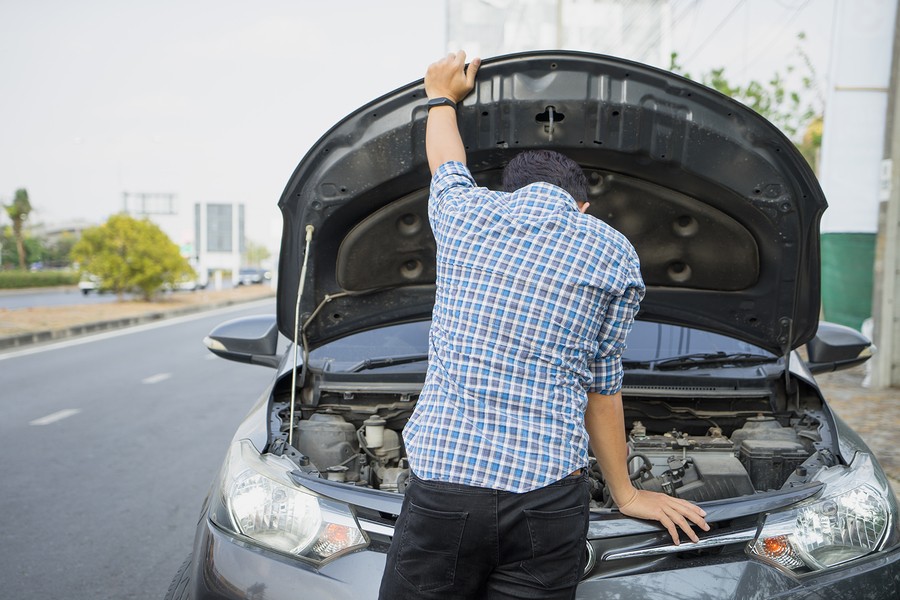If you're looking for “how long does it take for a car to cool down?” It typically takes about 30 minutes.
Engine overheating Problems can happen at any point. Unfortunately, there are a lot of inexperienced drivers who need help understanding how what could go wrong when the engine overheats.
Understanding how long it takes for your engine to cool down is extremely important to help you decide whether you can drive your car or not. It is also important to know because you will then decide when you can touch the hood or do any maintenance, like adding coolant or changing the oil.
There’s much confusing information over the Internet about the time it takes for your vehicle to cool down. It's not surprising to see this confusion because the amount of time your vehicle takes to cool down depends heavily on whether you're looking for a general cooldown or planning to do certain inspections or maintenance for the vehicle.
This article walks you through all you need to know to help you understand the time it takes for your vehicle to cool down. It also highlights general information about engine overheating problems and other techniques to help cool down your vehicle much faster.
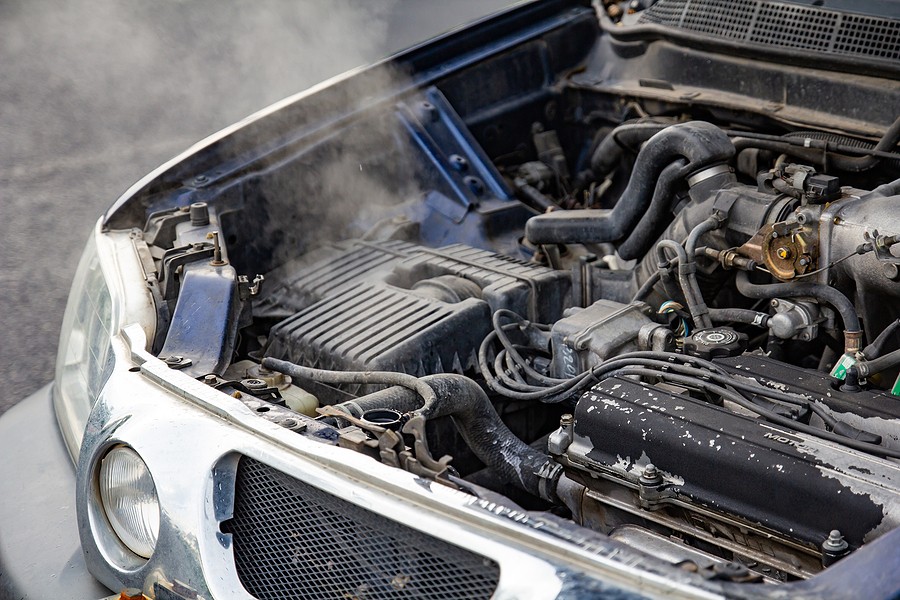
How long does it take for a car to cool down?
Generally, your vehicle takes about 30 minutes to cool down and allows you to inspect it safely without any problem.
Knowing this information is very important, so you cannot inspect or check whether your vehicle is overheating or why there's low coolant unless you allow your car to cool down for at least 30 minutes.
Remember that sometimes your vehicle might cool down much faster than the 30 minutes, and other times, it could take even longer. This depends heavily on the surroundings around your engine.
For example, if the ambient temperature outside is very hot and you're driving or checking your vehicle during the hot summer, it will take much more time than when you're checking your car during the winter.
Consider that automotive experts recommend allowing your car to cool down for at least two hours if you plan to do any maintenance. In other words, while 30 minutes is a good rule of thumb for doing some inspections, you need to leave the car for at least two hours before you change items or install new components. This way, you guarantee that the vehicle is completely cooled down and all the internal components are also cooled down.
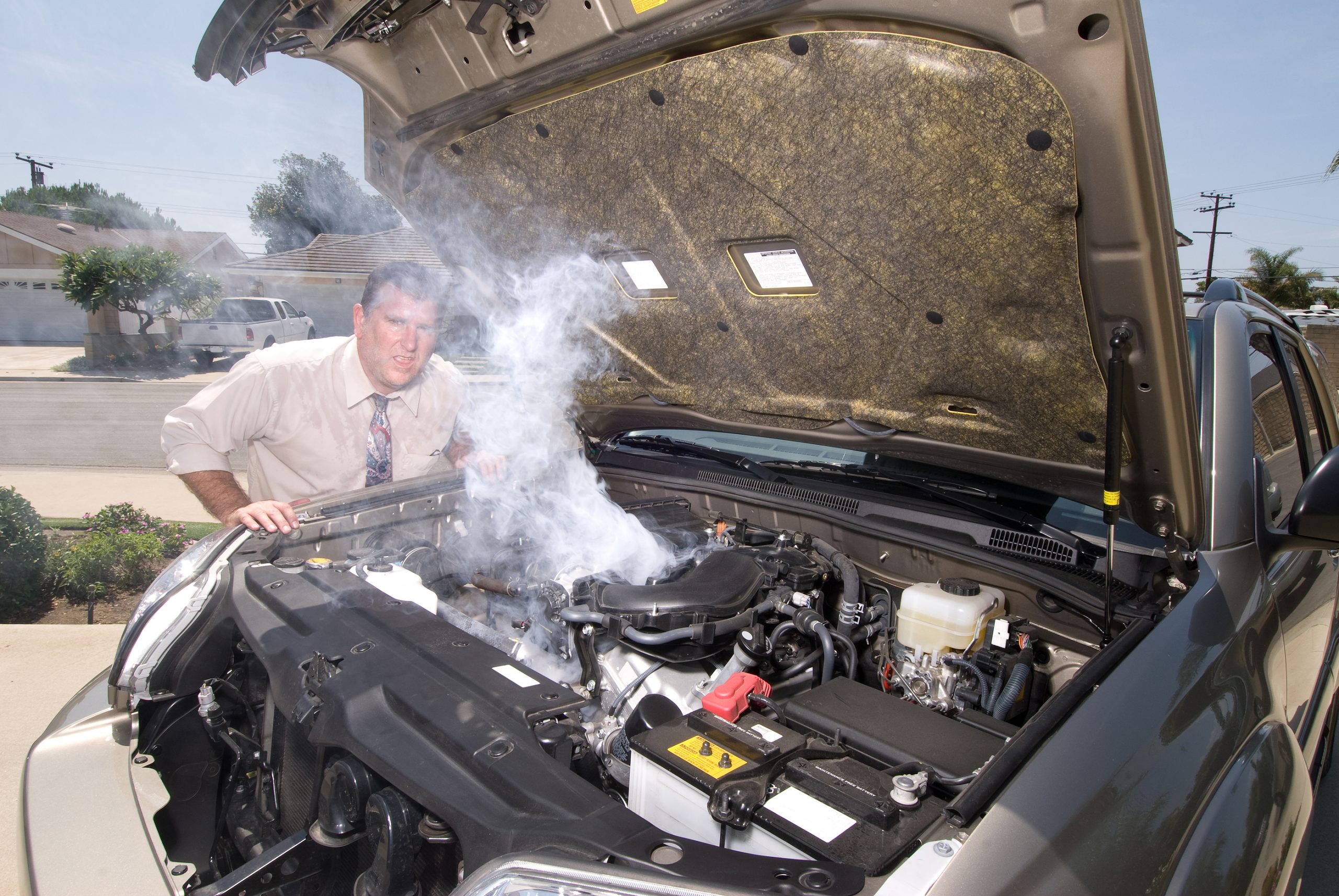
What are the different engine cooling fans, and how do they cool down the engine?
While it's known that the cooling system is responsible for cooling down your engine, many inexperienced drivers underestimate the purpose and the goal of the cooling fans in the engine. Therefore, we would like to provide a few more details about your engine’s different types of fans, their purpose, and their functionality in cooling your vehicle.
Typically, there are two types of cooling fans in any engine, including electric cooling fans and manual cooling fans.
1. Electric cooling fans
As the name suggests, electric cooling fans rely on electricity as the main power source. These fans typically work when your engine runs slowly, and as air passes through the radiator, these cooling fan help cool down the engine.
This cooling fan must work properly because sometimes we hear complaints about vehicles overheating at lower speeds. In that case, you should look at the cooling fan because it could be responsible for this problem.
Remember that when you're driving at low speeds, typically, the cooling system relies on this cooling fan to bring the engine temperature to the optimum level whenever there is a problem. When this feed is not working properly, your engine won't be cooled down, and that's why you'll have a hard time trying to cool your engine fast.
2. Manual cooling fans
The other type of cooling fan is the manual one. It's typically located somewhere close to the engine’s pulley. This fan works whenever your engine’s temperature exceeds a certain threshold, meaning it works at higher temperatures.

What's the fastest way to cool down an engine?
Sometimes we might be in a situation where you would like to call down your engine very fast. You might need more time or be in a situation that only allows you a little time to cool down the engine.
Therefore, automotive experts put together a list of recommendations for how to cool down a car engine quickly. Let's take a closer look at these recommendations:
1. Consider an extra bottle of antifreeze
If you don't already know, coolant is the main fluid responsible for cooling down the engine when it overheats. Sometimes most overheating problems are related to low coolant levels; therefore, the easiest way to drop your engine temperature fast is to top off the coolant.
Therefore, one of the most important strategies to help you cool down your engine fast is having an extra antifreeze bottle and water in your vehicle. You can use these drinks for emergencies and top off your cool lens without needing to reach out to roadside assistance, which could cost you money.
2. Reduce the pressure
When driving your vehicle, you might turn on the AC system, radio, and probably other systems. In that case, you're adding too much pressure on the engine, which will work at its maximum capacity.
One of the simplest tricks to help you cool down the engine fast is reducing the pressure. For example, if you don't need the AC system, you can turn the radio off. This way, the engine focuses on providing the energy you're looking for to support the important necessary items rather than wasting its energy on things you might not need.
3. Turn on the heater
Surprisingly, turning on the heater is one of the easiest ways to help cool down your engine fast. It sounds weird. Well, automotive experts proved that by turning on the heater for a couple of miles, you're simply encouraging your vehicle to cool down.
This is because when you change how your vehicle functions, the heating system is another way to help cool down the vehicle fast. Thus, try and see if your vehicle is called down by turning on the heating system.
4. Try pulling over
Sometimes your overheating problem can be persistent; in that case, you might not have a chance other than trying to pull over and stop your vehicle. Of course, if you're driving on the highways, it's better that you take the nearest exit and pull over at a safe area.
However, there are some instances where you might not have time, and you might start noticing some other severe symptoms like smoke coming out of the vehicle and other issues clear in that case, the only situation for you is to pull over at the highway shoulder and then focus on the other steps.
5. Inspect the vehicle
Once you pull over, the next step is to allow your vehicle to cool down for at least 30 minutes if it's extremely hot here. This is because you don't want to touch the hood or the most dangerous system, which is the cooling system, when the vehicle is extremely hot.
Once your vehicle is cooled down, look at the coolant and see if it's dropping for whatever reason. Sometimes the coolant might be dealing with a leaking issue or other problems.
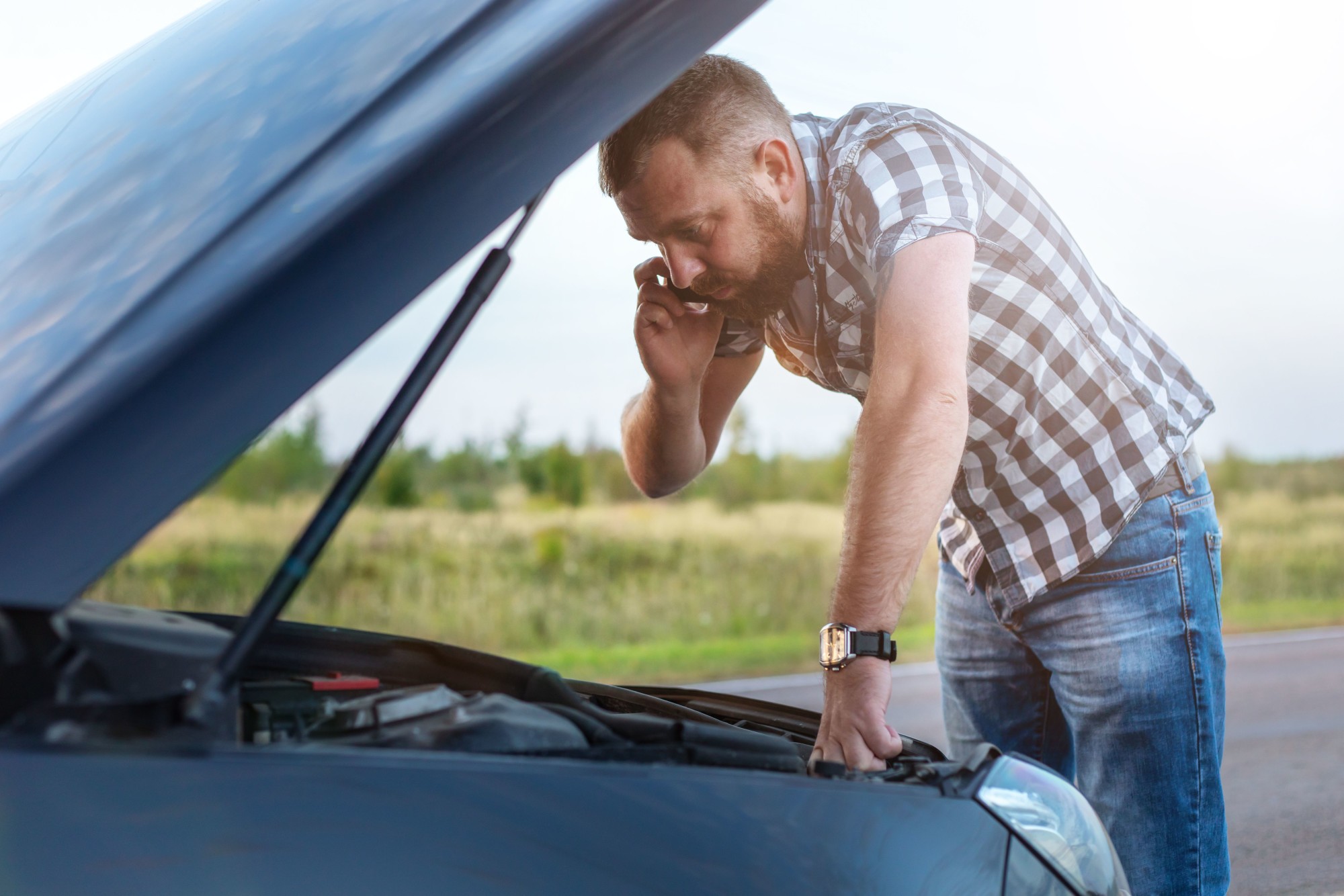
Factors impacting how quickly your car cools down
As we indicated before, there might be some situations where your vehicle takes more time than it should cool down. Therefore, it is critical for you to understand what factors impact how quickly your car can cool down.
Let's take a look at some of these factors:
1. The engine Bay insulation
The engine Bay insulation is the first and most critical factor that could impact how fast your vehicle cools down. Sometimes, you might be using an alt engine that needs to be designed properly to withstand the extreme temperature of the combustion process. In that case, you will expect to deal with longer times for your vehicle to cool down.
2. Your engine’s maximum operating temperature
Also, as the engine ages, it might reach a maximum operating temperature higher than other vehicles.
It can be a different age than the age of your vehicle. The type of vehicle that you're driving requires a lot of energy, much's why the engine reaches extremely hot temperatures, especially if you're driving an off-roading vehicle or a car that requires tons of energy to be produced.
If your engine reaches a very high maximum operating temperature, it will need more time to cool down than another engine that doesn't reach this temperature.
3. Coolant circulation
In some vehicles, the coolant might take much time to reach all the different components around the engine, which is why it takes more time for the engine to cool down. Also, there could be a problem with the coolant that prevents it from reaching inaccessible areas around the engine, and that's why the engine keeps overheating and might not even cool down that easily.
4. Weather temperature
We also mentioned earlier that your vehicle would take time to cool down if the temperature outside is extremely hot. This is common sense with heat transfer from different objects. Sometimes the engine’s temperature isn't always coming from the combustion process. It could be that the temperature outside is very hot, so your engine is taking longer than it should cool down.
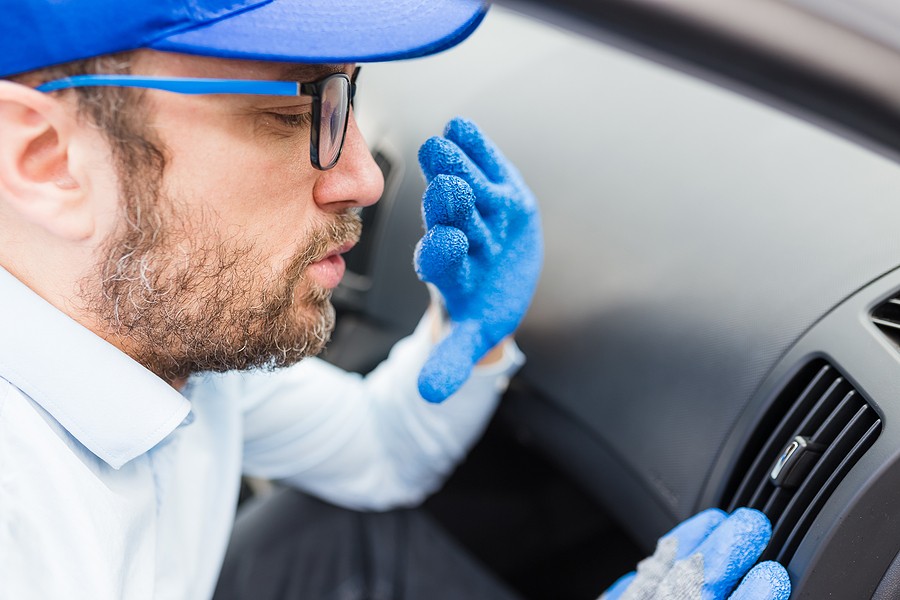
Can you cool down an engine while driving?
Yes, of course. If you're driving your vehicle and feel the car is overheating, then you can apply the methods we previously indicated to cool down your car. For example, you might want to turn off all the different systems you don't use, like the AC system and the radio.
You also might need to pull over in some instances to check on the vehicle and see if there are some problems with the cooling system or other components.

How long does it take for a car to cool down? Final thoughts
In any vehicle equipped with a combustion system, the engine gets hot. A hot engine could mean a lot of different things and understanding how long it takes for the engine to cool down is very important for you as a driver to keep up with your vehicle and pinpoint any risky situations.
This article walks you through all you need to know to help you answer the question, how long does it take for a car to cool down? It also provided some highlights about other factors that could impact the cooling down time for your vehicle. Finally, it provided you with some recommendations on what to do if your car overheats while you're driving.
Note that some cars might have persistent overheating problems, which could be an issue with the vehicle itself. In that case, it could be perfect timing for you to sell this vehicle and buy a better one.
Are you looking for someone to buy your car, considering its overheating problems? Why don't you reach out to cash cars buyer today?
Cash Cars Buyer is one of the top-rated car removal companies in the nation that guarantees to pay you the top dollars and provide you with free towing despite your living location around the United States.
Our process is straightforward and doesn't take more than removing your car safely and for the most money.
All it takes you is to:
- Describe your car's type and condition
- Receive our instant free quote
- Accept the quote
- Get your car removed and receive your cash payment on the spot!
To learn more about our process and team, you can reach out to us by calling us at (866) 924-4608 or by visiting our home page and clicking on the free instant online offer.

